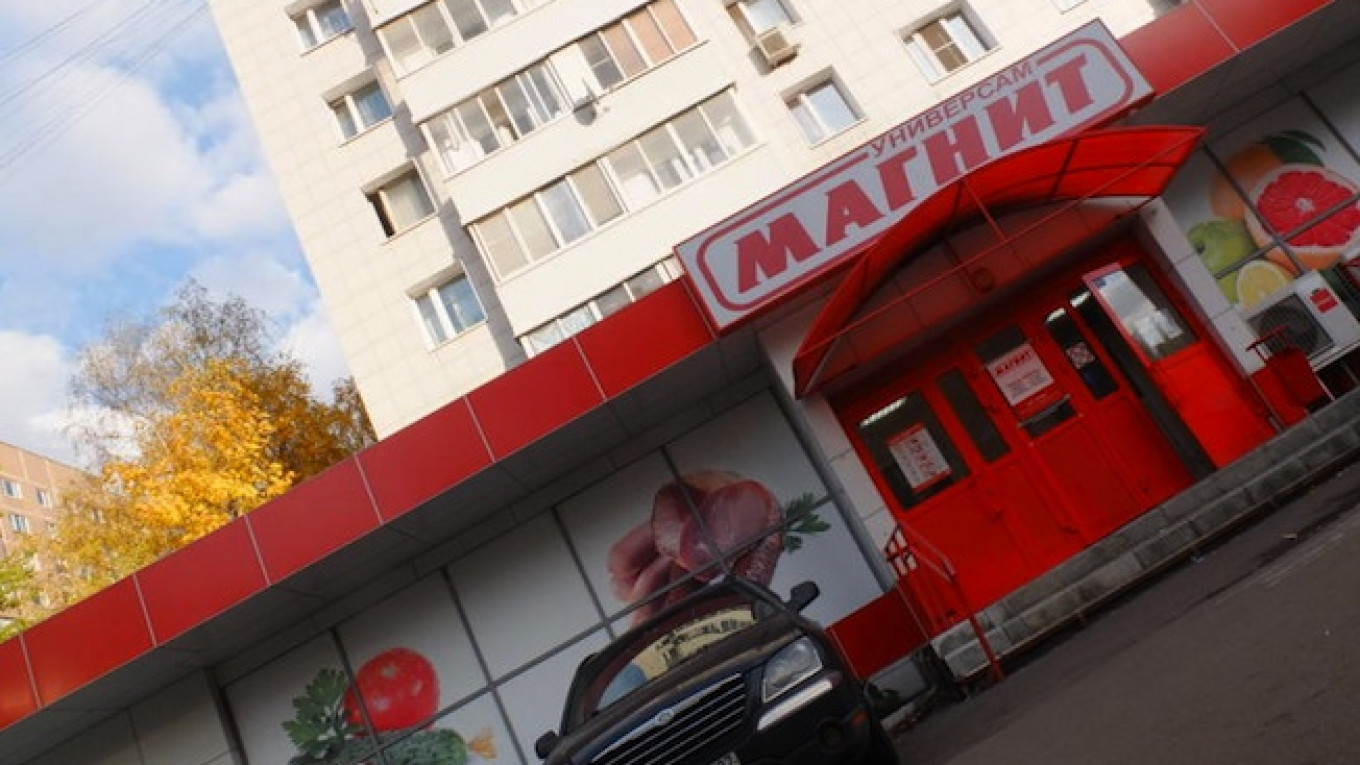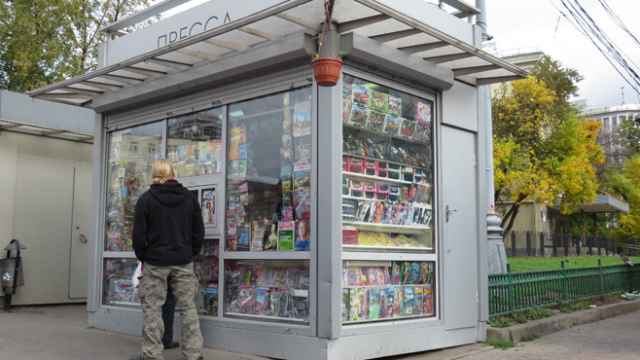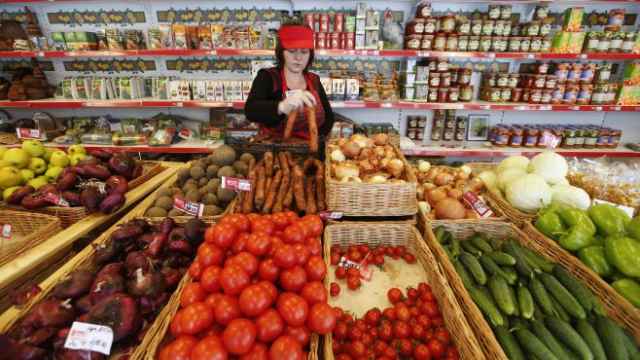Russia's biggest food retailer, low-cost Magnit said it would continue expanding aggressively despite an economic crisis that could sap consumer spending.
Russia's economy is expected to slide into recession this year and ratings agency S&P cut Russia's sovereign credit rating to junk status after a slump in oil prices and Western sanctions over Ukraine deepened an economic crisis.
Budget grocery chains are usually resilient in downturns but analysts expect consumers to cut spending on food because of high inflation and declining disposable incomes.
Magnit, a more than 9,700-store chain of mostly low-cost neighborhood stores, voiced confidence on Tuesday it could weather the storm even though its dollar earnings slumped in the fourth quarter on foreign exchange losses.
"We have the lowest debt burden and a strong management team, which will allow us to continue aggressive expansion despite the instability in the marketplace," said Sergey Galitskiy, Magnit founding CEO and a 42-percent shareholder.
"We have set ambitious store opening plans and we are confident in their fulfilment," he added. Magnit is expected to provide 2015 store opening guidance and its results outlook at a conference call later on Tuesday.
Based in the southern city of Krasnodar, Magnit has been expanding across Russia's regions at the fastest pace among peers and has leapfrogged X5 Retail Group as the No.1 grocer by sales in 2013.
It opened a net 1,618 stores in 2014 and increased sales by almost 32 percent in ruble terms, also achieving a 33 percent rise in net profit and a core profit margin of 11.20 percent.
But a slide in the ruble, which quickened in December, skews its dollar results which showed an about 22 percent fall in quarterly net income in the U.S. currency.
Net profit reached $284 million, compared to $362 million a year ago, which missed a Reuters poll forecast for a 14 percent fall on forex losses during conversion into dollars and associated with direct imports.
Earnings before interest, taxation, depreciation and amortization (EBITDA) fell 16 percent to $525 million, while the EBITDA margin slid to 11.3 percent from 12.5 percent a year ago, below a 12.1 percent analyst estimate.
Otkritie brokerage said the miss was due to greater purchasing cost inflation and forex pressures than anticipated, adding those pressures could continue into 2015.
A Message from The Moscow Times:
Dear readers,
We are facing unprecedented challenges. Russia's Prosecutor General's Office has designated The Moscow Times as an "undesirable" organization, criminalizing our work and putting our staff at risk of prosecution. This follows our earlier unjust labeling as a "foreign agent."
These actions are direct attempts to silence independent journalism in Russia. The authorities claim our work "discredits the decisions of the Russian leadership." We see things differently: we strive to provide accurate, unbiased reporting on Russia.
We, the journalists of The Moscow Times, refuse to be silenced. But to continue our work, we need your help.
Your support, no matter how small, makes a world of difference. If you can, please support us monthly starting from just $2. It's quick to set up, and every contribution makes a significant impact.
By supporting The Moscow Times, you're defending open, independent journalism in the face of repression. Thank you for standing with us.
Remind me later.






